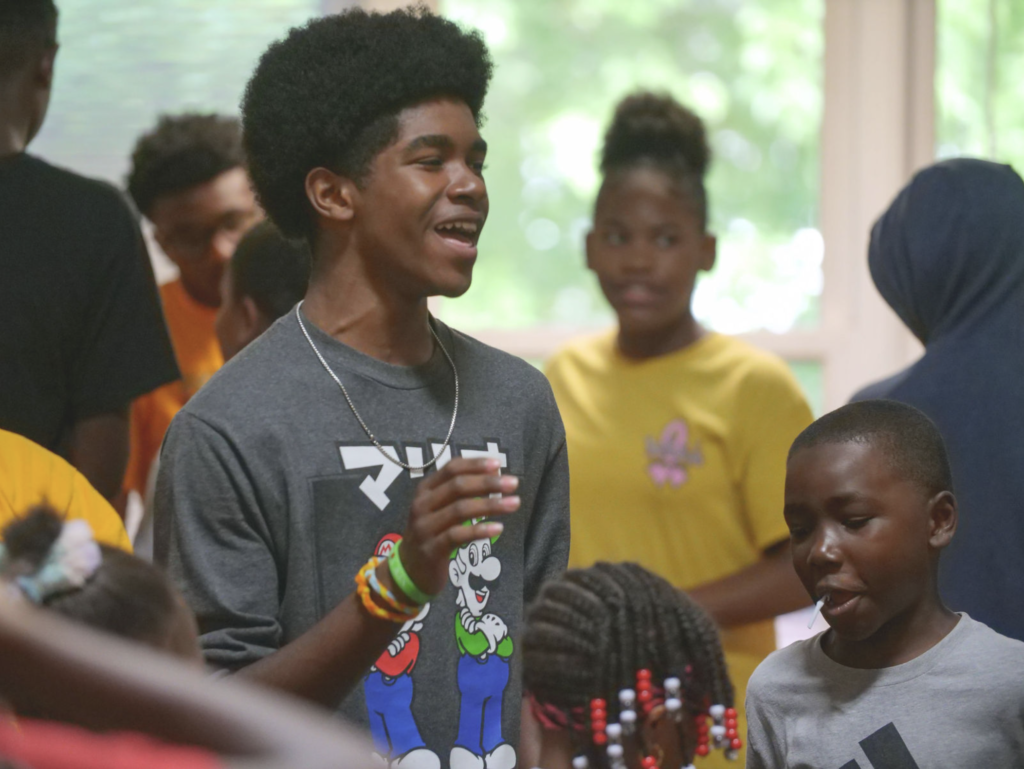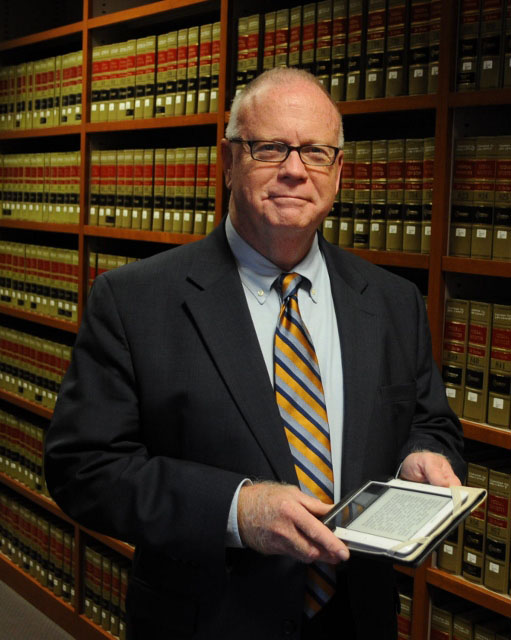The Episcopal Diocese of Atlanta is celebrating the ongoing impact of its Children’s Defense Fund’s Freedom Schools® summer programs in Atlanta and Macon.
Bishop Rob Wright said both programs have proven to close the achievement gap by improving literacy and learning for children who face poverty and lack access to the educational resources they need to succeed.
The diocese’s first Children’s Defense Fund Freedom Schools® program in 2015 was on the campus of Emmaus House in the Peoplestown neighborhood of Atlanta.
For seven years it has served students from kindergarten through fifth grade. Its goal: motivating young scholars to read, build positive attitudes towards learning, and empower them to make a difference for themselves, their families, their communities, and their world, Bishop Wright said.

In 2016 Wright announced a second CDF Freedom Schools® program would open in the summer of 2017 in Macon, Georgia, as part of the Diocese of Atlanta’s continued effort to support children living in poverty.
“Of all the things people of faith should be dealing with children are at the top of the list,” Wright said in a speech at the Interfaith Children’s Movement’s 16th annual “Call to Action” Prayer Breakfast. “A society can be rightfully judged by the way it cares for its children and Georgia gets a failing grade when it comes to children living in poverty.”
CDF Freedom Schools®, were established in 1995 by the Washington D.C.-based advocacy center to help children and young adults excel and believe in their ability to succeed. Children’s Defense Fund founder Marian Wright Edelman has said she was inspired to start the program by the “Mississippi Freedom Summer Project,” started in 1964 by two civil rights organizations: the Student Nonviolent Coordinating Committee and the Council of Federated Organizations.
Ann Fowler, who founded the CDF Freedom Schools® program at Emmaus House in 2015 said it’s important in preventing the so-called “summer slide” learning loss, but it’s also an opportunity for students to leap forward, getting them “up to speed” with school curriculums and with their more advantaged counterparts. Fowler, who retired from Emmaus House after this year’s Freedom School, said it is about much more than reading.
“I’ve attempted to offer high-quality educational programming to the Emmaus House community, but it was just as important for me to care for—and give attention to—individuals seeking help or needing someone to listen to them.
“Being at Emmaus House has been more than a job to me, it’s been a ministry. I will miss the kind, welcoming Peoplestown community, and the brilliant, energetic Freedom School staff. But most of all, I will miss the bright, enthusiastic, sweet Emmaus House children. They are my heart.”
In an average summer, students lose up to two months’ worth of learning, Fowler said. “During our last two (in person) programs, 100 percent of Emmaus House Freedom School scholars either maintained or improved their reading level. Some gained more than a year in functional reading ability,” she added.
During the pandemic of 2020, Emmaus House responded by creating Vision 2020, a six-week online literacy program that served 40 elementary school students during the summer. Volunteers delivered meals and books to the scholars’ families during that time, and Fowler continued to deliver meals, books, school projects, and supplies to them during 2020-2021.
For the 2021 – 2022 school year the Emmaus House renamed and expanded Vision 2020. It became Supports for Students, a year-round in-person tutoring program for K-2nd graders at the nearby Barack and Michelle Obama Academy. Volunteers from Church of the Epiphany, All Saints’ Atlanta, St. Michael’s and All Angels, and the Emmaus House Chapel serve as tutors.
Macon’s CDF Freedom Schools® program manager Julie Gross also pivoted in 2020 by reimagining Macon’s summer literacy program as Appleton Free to Read Summer.
Scholars met with their teachers face-to-face – although at a six-foot distance – when teachers delivered new learning packets and nutritious meals to the child’s home each week. Teachers followed up with one-to-one contact by Facetime video, Zoom, or email, depending on the students’ resources, and students could return photos of their completed activities by text or email. Gross said that 95% of the Macon scholars did not suffer summer learning slide and either maintained or exceeded their pre-program reading levels, many by an average of 9 months or more.
Financial uncertainty about continuing the program during the pandemic caused Gross to drop its affiliation with CDF Freedom Schools®, but said the curriculum and concept remain faithful to CDF’s vision.
“Appleton’s program follows the same tenants, we follow the same models, but we call it Free to Read as kind of a signal that it’s the same, yet different,” Gross said.
Financial support for the Macon program by community members has increased, Gross said.
“We are very blessed to have better funding each year. You know, we’ve had major donors who came forward, who see the value of this. We still have small donations, but we are establishing regular large donor support for this program.”
Gross said Macon’s Appleton Free to Read Summer returned to in-person learning this summer. And the program is beginning to offer a school year mentoring and tutoring option through local Path to Shine programs – another innovation of the Diocese of Atlanta.
The Rev. Kenya Thompson, who became Emmaus House’s director of leadership development and education when Ann Fowler retired, said she is excited to continue building the life-changing program.
“I’m really excited about continuing this work and building upon the work that my colleague Ann fowler has done for so many years.
“We’re all very aware that in the world in which we live there are a lot of challenges facing young people today that are different from what we faced five to twenty years ago, so we want to instill confidence and faith that despite everything else that’s going on in their own personal lives or the world that they can achieve, that they can get the desires of their heart, that they can excel and, that they can be a productive part of their community.”
Volunteer reader Staci Fox said visiting the Emmaus House program’s daily opening activity called Harambee (“all pull together” in Swahili), where students sing, dance, cheer, and get excited for a day of learning. “was a blast.”
“Everyone should start their day this way,” said Fox, who is President & CEO at the Georgia Budget and Policy Institute.
Raising funds to support the Freedom Schools program and everything else Emmaus House does is a year-round effort. Greg Cole, Executive Director, considers ensuring they have the resources to pay for programs, provide rental and utility assistance, and so much more to be one of his primary responsibilities. It costs about $3,200/day to provide economic support and educational enrichment to people on the southside of Atlanta. The generosity of people throughout the diocese and beyond is overwhelming, and a testament to the trust Emmaus House has built over the years.

